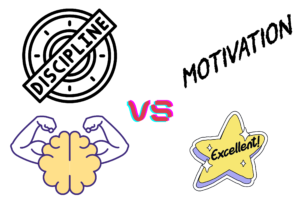John C Maxwell states, “A leader is one who knows the way, goes the way, and shows the way.” Being a leader is not about having a title, a position, or a rank. It is about influencing, inspiring, and empowering others to achieve a common goal, whether in the workplace, community, or personal life.
Effective leaders do, however, consistently exhibit a few fundamental characteristics. These qualities set leaders apart and influence how they overcome obstacles, motivate subordinates, and foster achievement.
This article will reveal 10 qualities of a good leader commonly associated with effective and successful Leaders.
Revealing Leadership Qualities and Characteristics: An All-Inclusive Manual for Recognizing Genuine Leaders
1. Effective Communication
A crucial component of good communication is active listening. It takes more than merely listening to words to comprehend the feelings and viewpoints that underlie them.
In this approach, others feel that their viewpoints are valued and acknowledged, facilitating the development of trust and inspiring individuals to collaborate to achieve shared goals.
Open discussions occur before decision-making, during which a team leader actively listens to team members as they express their ideas, opinions, and feelings.
The vision is then further explained by the leader. In addition to fostering clarity, alignment, and a feeling of shared purpose, effective communication is a critical component of understanding and successful outcomes.
Effective communication is essential for teams to function well. Leaders who cultivate a culture where team members feel free to share ideas and offer feedback produce an inventive and efficient work environment.
2. Adaptability
In the context of leadership qualities, adaptability refers to various abilities and traits that enable people to react appropriately to changing conditions.
An adaptable leader welcomes change and leads the group through it by turning obstacles into chances for development and utilizing them as benchmarks for advancement. A competent leader doesn’t succumb to anxiety in the face of uncertainty. Instead, they remain composed.
A leader possessing this attribute would have a strong growth attitude. Such a leader demonstrates high emotional intelligence, is adaptable in decision-making, and learns from mistakes.
Adaptability is a proactive strategy that can be utilized to negotiate the complexity of the modern environment, not only a reaction to change.
3. Decision-Making
A leader needs to be capable of making crucial choices that will impact the team’s development. To make the best selections when faced with difficult choices, weigh your options and establish sensible priorities.
Making decisions involves selecting a team’s course from a wide range of choices. There must be alignment between the team’s goals and the actions performed because every choice a leader makes brings them one step closer to the final destination. Assessing present and future hazards and guiding the group toward the objective are the skills of a competent leader.
This quality keeps things moving forward steadily and prevents the goal from stagnating.
4. Empathy
Effective leadership relies heavily on empathy, commonly defined as the capacity to comprehend and experience another person’s emotions.
It is a tool that improves communication effectiveness and fosters situations where people’s perspectives are respected. An effective leader makes an effort to relate to and comprehend the feelings and experiences of their team members.
One important result of empathy is trust. Empathic leaders foster trust by genuinely exhibiting an interest in the viewpoints, difficulties, and goals of their team members.
Empathetic leaders steer decision-making with compassion and keep an eye on the organization’s objectives while searching for solutions that strike a balance between the demands of the group and the welfare of its members.
5. Humility
Humility is not a sign of weakness; on the contrary, it is a strong, transforming force that promotes teamwork, fortifies bonds, and propels organizational achievement.
In contrast to the conventional authoritative approach, it entails an honest recognition of one’s abilities and shortcomings, a readiness to absorb new information from others, and an unpretentious openness to different viewpoints.
Team members can feel safe taking risks because they know failure is seen as a chance to improve rather than a reason to be punished when mistakes are freely admitted to and handled with accountability and a commitment to learning. This quality also makes it easier to prioritize group accomplishments above individual ones.
6. Influence
A crucial component of good leadership and decision-making is the capacity to effectively influence others. A team’s motivation and action can be sparked by effectively conveying a vision.
Influence assists leaders in guiding their teams through change by converting possible opposition into cooperative activity.
A very productive environment is created by influential leaders. Their choices, behaviours, and modes of communication shape the culture that exists in the company.
Prominent leaders employ diplomacy to preserve peace and keep the emphasis on shared objectives rather than letting crises worsen. It helps retain and satisfy employees and draws in top talent.

7. Resilience
A good leader must possess resilience, which is the capacity to remain composed in the face of difficulty. A leader’s steadfast position is crucial for crisis management since it increases team members’ confidence and promotes team development.
In today’s ever-evolving environment, a competent leader can embrace change and motivate their team to embrace it instead of resisting it.
Failure does not deter a resilient leader. Instead, they use the experience to grow as a team and learn from past mistakes.
8. Courage
A strong leader must have the courage to take risks and stand for what they think is right, even when others disagree. It’s common for leaders to have to make tough decisions in the face of uncertainty or possible criticism.
A competent leader may encourage the group to take advantage of new chances by being honest and forthright in sharing information and owning up to their mistakes.
When a leader demonstrates this quality, team members are more willing to push limits and take on challenges. The company is driven by creativity due to analysing various viewpoints and using unorthodox solutions.
9. Visionary Thinking

Pushing boundaries is a cognitive process of visionary thinking. Being able to envisage and build a future beyond the limitations of the present, to imagine uncharted territories and make them a reality, is one of the attributes of a good leader.
It is a given that growth and innovation in this quickly changing environment depend on visionary thinking. It is essential to discern patterns, predict, and actively influence future developments.
Visionary thinking must be accepted even though it occasionally entails significant risk, uncertainty, and failure. A competent leader must be prepared to take on obstacles for the benefit of the group and clearly communicate a compelling vision that encourages and inspires people to work together to achieve the objective.
10. Integrity
Following moral guidelines, acting, and making judgments honestly and consistently are ways to keep integrity. Living up to this set of values encourages happiness and builds trust among the group.
In leadership, trust is everything, and trust is based on integrity. When a leader openly conducts themselves, trust can easily develop.
Competent leaders do not just focus on doing what is convenient; they weigh the repercussions and consider the long-term consequences of such decisions on the team’s reputation.
Team members will be more inclined to accept instructions from the leaders when these values and concepts are modelled for them.
Conclusion
In the end, good leadership qualities are skills that can be learned and developed by anyone who wants to make a positive impact in their personal or professional life.
Know this: being a leader is not hinged on the position you occupy, or the title given to you, but the mindset and behaviour you put into it. You can be a leader in any role and situation if you have the desire and the determination to make a difference. What’s better is you can start your journey today towards becoming the leader you want to be.
About Tommy Turner:
Entrepreneur and author Tommy Turner brings over three decades of experience inspiring others through his journey in the piano industry, online marketing, stock trading, and motivational writing.
For more about Tommy’s journey and work, visit the about page, drop a line on the contact page or leave a comment in the comments section. Check out Tommy’s books!






